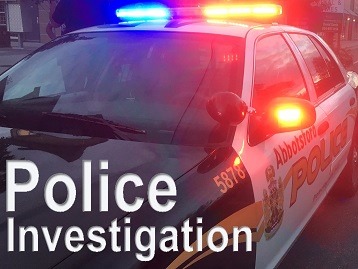Vancouver – BC School Sports, the governing organization for school sports in the province, has mandated a BC Children’s Hospital-based concussion education training module for its members who work with young athletes.
Now those who supervise secondary school sports will be better prepared to prevent, respond to, and manage concussions in teens when these activities resume this fall.
The Concussion Awareness Training Tool (CATT) was developed by the BC Injury Research and Prevention Unit (BCIRPU) at BC Children’s Hospital.
“The training will enable every coach to recognize symptoms of concussion, whether injury happened while cycling to school, skateboarding on the weekend or during a coach-led skills development session,” says Shelina Babul, associate director of BCIRPU, an investigator at BC Children’s and clinical associate professor in the department of pediatrics at the University of British Columbia. “Coaches will be trained to help support kids with concussions as their brains heal.”
Every head coach, assistant coach, manager, teacher-sponsor and student-manager will complete concussion education online so they can better care for more than 70,000 youth at the more than 450 public and independent secondary schools that are members of BC School Sports.
Jordan Abney, executive director of BC School Sports, calls it a proud day for his organization.
“I am thrilled our membership has chosen to mandate concussion education for every one of our coaches,” he says. “BC School Sports and our member schools are committed to providing a safe and inclusive environment for our student-athletes to train and compete. Partnering with Babul and her team with CATT to ensure each person in a leadership capacity within school sport has this training is critical in delivering on that commitment.”
FYI:
· A concussion can result from a significant impact to the head or body that can cause the brain to move inside the skull, damaging nerve fibres.
· Most concussions, managed appropriately, resolve without complications. On some occasions, concussion injuries can be more serious and can result in long-term disabilities.
· Nearly 2,000 B.C. teens visit the emergency department for a concussion each year.
· Teen males are more likely to have a concussion than teen females.
· The leading causes of a hospitalization as a result of concussion are falls, transport-related injuries and incidents where the individual was struck by an object, such as sports equipment.
· Most concussions do not include a loss of consciousness. Loss of consciousness occurs in less than 10 per cent of diagnosed concussions.
· If there’s a history of concussion, even a minor hit to the head or body can trigger symptoms.
· Symptoms can be physical, mental, behavioural and emotional and impact sleep.
· Call 911 following a blow to the head or body if an individual experiences: neck pain or tenderness; double vision; weakness or tingling/burning in arms or legs; severe or increasing headache; seizure or convulsion; loss of consciousness; deteriorating conscious state; vomiting; restlessness, agitation or combativeness.
Learn More: https://bit.ly/34qyVyZ
BC Children’s Hospital, a program of the Provincial Health Services Authority, provides expert care for the province’s most seriously ill or injured children, youth and young adults, including newborns. Child and Youth Mental Health provides a diverse range of specialized and one-of-a-kind tertiary mental health and substance use services for children, adolescents and young adults across the province. For more information, visit www.bcchildrens.ca or follow us on Twitter @BCChildrensHosp.
The Provincial Health Services Authority (PHSA) plans, manages and evaluates selected specialty and province-wide health care services across B.C., working with the five geographic health authorities to deliver province-wide solutions that improve the health of British Columbians. For more information, visit www.phsa.ca or follow us on Twitter @PHSAofBC.
BC Injury Research and Prevention Unit is a leader in the production and transfer of injury prevention knowledge, supporting the integration of prevention practice into the daily lives of British Columbians. Established in August 1997, the Unit is a core research program within the “Evidence to Innovation” theme at the research institute of BC Children’s Hospital. For more information, visit www.injuryresearch.bc.ca or follow us on Twitter @BCIRPU.
BC School Sports
This governing body for school sport in B.C. sanctions 19 sports in three seasons of play each academic year. The association aims to foster the development of good character through positive and equitable school-based experiences. BC School Sports is comprised of 450 member secondary schools – public and independent – across the province.













